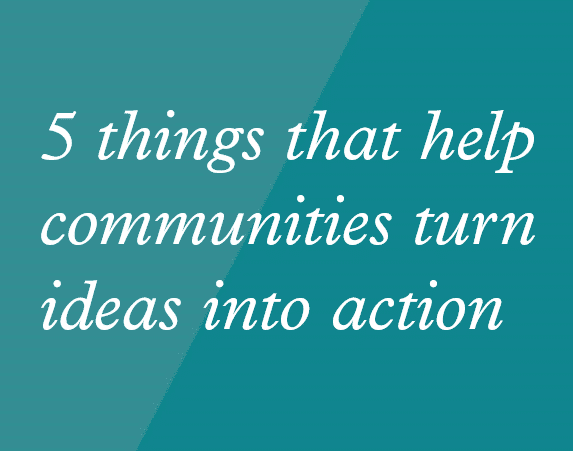
Planning in uncertainty
How can the voluntary sector be agile in and beyond the pandemic?
In June and July, we facilitated three online peer support sessions for 23 voluntary and community leaders. They were from organisations funded by the Children, Young People and Families Early Intervention Fund and Adult Learning and Empowering Communities Fund (CYPFEIF & ALEC Fund), administered and coordinated by the Corra Foundation – one of our flexible funders committed to demonstrating more open and trusting practices.
We recently published a briefing to share leaders’ experiences and our recommendations for planning in uncertainty and this quick-read summarises our outputs. Our hope is that these can be used to support organisations, and their funders, take small steps forward in thinking about and being agile.
Leaders’ experiences
Understandably, people emphasised their exhaustion from navigating the fall-out of the pandemic. They are not alone in their weariness, as over a thousand voluntary and community leaders have shared similar sentiments with us over the last year.
This period has been a relentless slog: a physical, mental and financial drain on organisations.
Despite their fatigue, leaders are proud of their achievements and efforts. The sector has demonstrated its unique value by meeting high demand and complex needs with unwavering commitment.
Many have used this opportunity to be more creative, agile and emergent in their work: ‘We are living more comfortably with risk, not allowing it to stop us doing something, just doing it differently’.
The lifting of restrictions has helped us move toward ‘something resembling normal’ but voluntary sector leaders are under no illusion it is back to business as usual, with difficult choices to be made on everything from blended working, delivery methods to funding.
During the sessions we listened and learnt from leaders’ experiences and what they felt was needed in order to plan effectively during uncertainty.
In their own words, two sector leaders – whose thoughts resonated with the group – summarise the importance and value of the contributions made by the third sector during the pandemic, and what it will take for them to keep delivering that value:
Read Marguerite Hunter Blair’s (Chief Executive of Play Scotland) blog here.
‘We must rethink this hand-to-mouth approach to funding which can feel disrespectful, debilitating, and demeaning for voluntary organisations.’
Read Eddie McConnell’s (Chief Executive of Down’s Syndrome Scotland) blog here.
‘This is the moment for leaders across the third sector to be big, bold and brave – it’s time to put the #ThirdSectorFirst.’
Recommendations
It is clear that leaders, and their organisations, will need to continue to tap into their creativity as we move forward, as will their funders. We’ve highlighted starting points for voluntary sector leaders and their funders.
Voluntary sector leaders
- Know your value. Exercise agency over current circumstances by knowing your unique value: who you are, why you are here, and what your contribution could be.
- Plan flexibly. Uncertainty is here to stay. This transition will require organisations to move from detailed project plans and outcomes to being responsive and flexible in how charitable objects are met.
- Focus on wellbeing. Voluntary organisations will need healthy and motivated workforces to move through uncertainty, so make a serious commitment to wellbeing.
- Connection. A premium will need to be placed on open and generous communication and behaviours. Both internally to ensure organisational alignment and externally to benefit from peers and the sector.
Leading in uncertainty
Are you a leader interested in peer support? We provide frequent, free and facilitated peer support sessions for voluntary and community sector leaders to share what’s front of mind and anonymised learning to the sector.
Funders
- Collaborate. Changes to funder practices will be needed to demonstrate more open and trusting behaviours which privilege collaboration over competition among voluntary organisations.
- Plan flexibly. In order for voluntary organisations to continue to be imaginative and ingenious to meeting community needs and continue vital services, they will need funders to move away from hand-to-mouth approaches to grants and toward more flexible and sustained support.
- Open and trusting grant-making. Are you a funder committed to supporting the sector? Join a community of 80 #FlexibleFunders who are working toward, and demonstrating, eight commitments to being more open and trusting in their grant-making.


